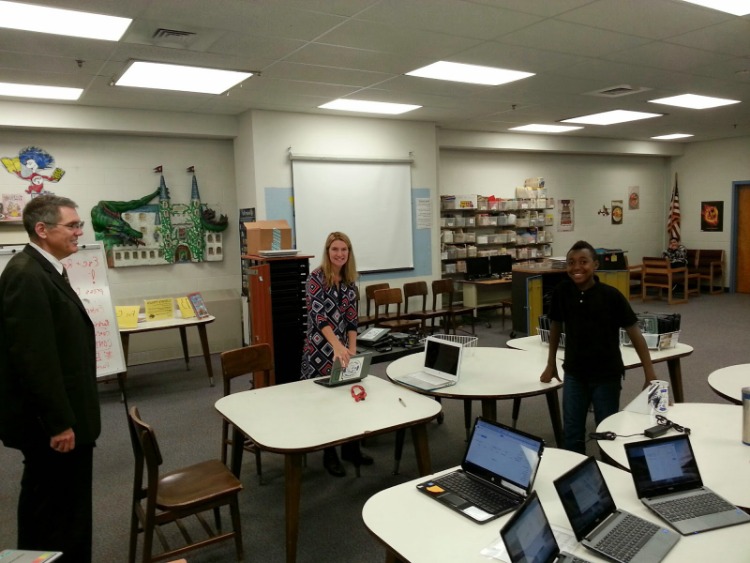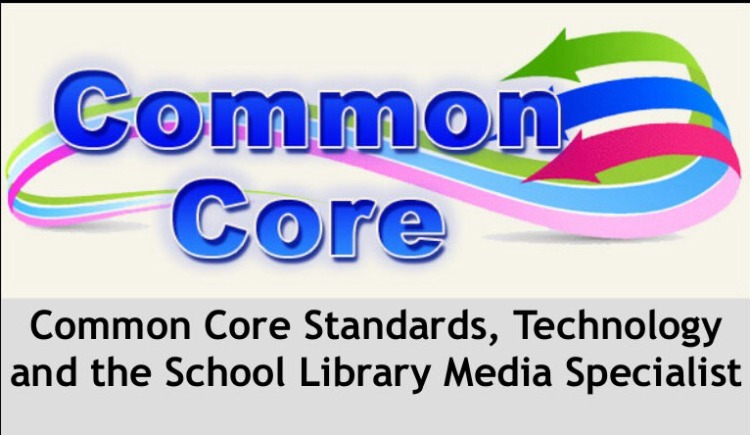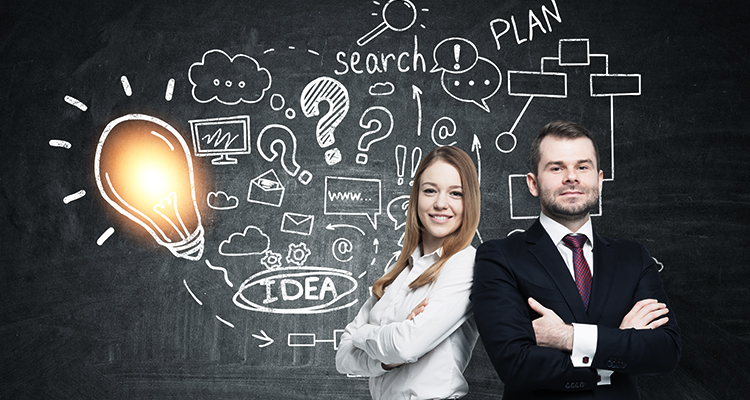Social Issue Essay Sample About Research Theory for a Media Specialist
Information travels at a relatively fast pace in today’s world. The technology is constantly updating, the people are becoming better informed and educated, and the whole society benefits from daily changes in the educational systems. One important component of a prosperous society is the application of its technological and informational resources. Every individual should utilize all the available resources in order to become self-efficient and be able to help the world with the acquired knowledge. Thus, information literacy is the skill to understand if there is a demand for information, and the capability to use the desired information in the best possible way.
Information literacy provides tools and techniques for evolving in the world of knowledge by preparing self-contained information gathering individuals. The abundance of information may be overwhelming at times, therefore, it is important to know how to use all the available information to the best of our capabilities in order to benefit self-growth. Information literacy helps choose the information that is useful, shows ways to search for the best information regarding the subject being researched. Whether a young student or an elderly person, information literacy plays a unique role in everyone’s life.
All across the USA, states have a set of “core curriculum standards” that help educational institutions organize their academic goals for their students. The Standards are intended to build the framework for the expectations and achievements from the students. It also serves as the guideline for teachers and parents to know what to do so their children will possess what is needed for a successful future. The Standards are drafted in accordance with diverse academic research, comparisons with other state curriculums and other career oriented surveys. The Standards are to be formulated clearly and vigorously, and at the same time useful in the real world after the completion of one’s education journey.
The foundation of a prosperous society is entirely based on the growing generation’s readiness for the future. The Standards are written with the aid of not only teachers and education administrators, but also with the ideas and suggestions of the students and community members as well. The Standards once again characterize the amount and quality of erudition that the students should be exposed to from K-12. The curriculum is structured in the way so it will entice the students to succeed in whatever path they choose after the completion of the high school career.
In particular, the New Jersey is focused on the students’ success. It defines clearly what the children should know by the end of the thirteenth year of education. The curriculum was found by the NJ State Board of Education in 1996 and it can be read the board of education website. There are seven pedagogic fields that are part of the New Jersey Core Curriculum Standards. It focuses on mathematics, health and physical education, arts, science, language literacy, social studies and world languages. All the presumed results are inscribed in the curriculum; however, the state of New Jersey allows individual districts to choose their own methods of accomplishing these goals. An asset of the New Jersey Core Curriculum Standards is the NJ ASK which is decoded as New Jersey Assessment of Skills and Knowledge. This test is designed for the children in grades 4th and 8th. It serves as a means for students to see their progress in the fields of math, language and science. The method also analyzes a child’s knowledge development in correlation with the Core Curriculum Standards (Newman, 2002).
One of the most valuable human traits is the ability to learn. There are many types of learning useful for any individual. The cognitive learning involves the use of the mental skills to acquire and digest new information. The new information builds up in the brain by improving the knowledge that already existed. It uses human capabilities such as observation, association, categorization of the knowledge acquired. Therefore, the learning process occurs more internally than from external exposure to the new elements of information and thus, the person may apply knowledge and events that happened in the past. Examples of cognitive learning are learning to read or dance because the individual has to use the brain abilities to learn the new processes. The learner has to develop ways to comprehend and ingest the new information actively. Cognitive learning helps develop semantic and episodic types of memories. The semantic type of memory is used when learning new words and what they mean. The episodic memory is attributed to the remembrance of certain life events.
Its practice among students is widely useful by teachers as they encourage the learning progress. The teacher acts as a builder and a guide for the students who constantly apply, test and use the knowledge learned. The resource based learning is the method of learning with the use of available resources in the process of learning. Thus, there is a strong relationship between the resources and the learner. This type of learning is widely used in the digital world and when someone uses a workbook in order to learn a subject. The resource based learning experienced a considerable increase in their use because the resources are easily available, cheaper, and more efficient.
Advantages of school library media program
The above stated learning theories can be widely used in a school’s library media program. There are a great amount of resources available in school library media programs that would enhance the practice of the above mentioned learning theories. Schools with good libraries tend to have higher academic results. The key to the best library is the availability of an awesome collection of books and electronic means, an up-to-date technology that can be used for academic purposes and experienced staff to collaborate with the students at all times. One of the best ways to understand the effectiveness of a library media program is to analyze the magnitude on the pupils’ scholastic success. The cognitive learning can be utilized in a school library when the students participate in different reading competitions that are usually awarded at the end. The library serves as a service center that has unlimited access to all types of information through books, media and technology. Therefore, the use of constructivist and resource based learning may be applied as well.
A school media specialist is the staff member who maintains the resources of a school’s library. Even though school media specialists are not considered teachers per say, they engage in immediate contact with the students as much as teachers do. They help students by directing them to the necessary resources to finish projects, write research papers or essays. Teachers also rely on a media specialist’s aid in getting their lesson plans together. They suggest what reading materials to use in order to develop students critical thinking and reading capabilities. Other responsibilities of a school media specialist are: instructing users of the library on how to utilize the resources of the library to their best advantage, leading individuals towards a better world of information and educating about information literacy. Depending on the school the school media specialist sometimes has the role of a program manager. The program manager oversees the financial end of the library, the accessibility of the academic resources, the updating of the school’s website, the rules and regulations of the library (Eisenberg, 2008).
The media specialist plays a direct role in promoting information literacy via the use of books, computers, and other media sources. Information literacy refers to the ability to use all the resources in order to better one’s future. Historically, the idea of literacy was firstly known in 1970’s; however, since the Civil War, this term has been known and used by librarians. The best contributor to technology literacy is the media specialist. The exceptional erudition of the technology in the library, the ability to direct the users to the necessary resources play a key role for the best library media specialist at encouraging quality technology literacy. For the longest time the library media specialists have always been considered as only information seekers, however, nowadays it is required of them to possess high technological abilities since most of the information is readily available and found rapidly on the cyberspace.
At the same rate it is not sufficient to just be able to find the information, but also it is crucial to stay updated with the constantly improving technology in order to efficiently explain how to use it to the rest of the school community. The definition of technology literacy is the qualifications that someone possesses to utilize technology to their benefit in order to reckon up, make up, collect and define information. Hence, the digitalized information erupted from the common information beyond the library settings.
It is very difficult nowadays to compete in the job market. One of the skills that employees search for in potential candidates is the technology skills. In the 21st century it has become increasingly important to be literate in the world of technology and information processing. The most essential technological skills that should be develop in the early years of schooling are: the ability to type, the use of the Microsoft Office package, Email and online search. The internet shall be used as a tool of researching and also know what websites are trustworthy.
As the ability to understand how the virtual world works, the students should be introduced to online literacy which is on the most significant skills in technology information. The idea of online literacy illustrates the capability of someone to identify the reliability of the information found. Another skill to implement in technology literacy is critical thinking. It involves the ability to identify what is true and what is not; the individual has to critically understand the purpose of each internet application and be able to utilize only for their educational growth. Every technology user shall have the courage to accept and adapt to technological changes since they are constantly moving at a rapid pace.
In the framework of identifying the vitality of literacy, it is highly recommended to analyze the scientific investigations of this concept. Firstly, the article “Information literacy: a bogus bandwagon?” (1991) accentuates the vitality of cognitive skills in gathering information and its adaptation in the scope of student’s life. Moreover, this article critically analyses the first model of information literacy, its pivotal components, and possible further researches in this field. Furthermore, this scientific paper pays attention to the external factors that can deteriorate or precipitate student’s literacy. Secondly, in the article “Learning the library: taxonomy of skill and errors” (1987) the authors point out the clear definition of student intended behavior in the processes of acting, thinking, and feeling.
Moreover, this article analyses the classification of educational objections as an ambiguous realm comparing to cognitive skills. Thus, the authors of this article proclaim that the process of teaching highly requires an individual approach to the students in order to develop their inner abilities to observe and to remember the information. Finally, the article “Managing the affective micro-information environment” (1985) accentuates the vitality of symbiosis between cognitive skills and their impact. Thus, Nahl-Jakobovits and Jacobovits pay attention to the pivotal role of student’s motivation, inner incentives, perseverance, and learning abilities in the process of information absorption. Moreover, the article “Seeking Meaning: a process approach to library and information services” (2004) critically analyses the dependence of coping skills from cognitive skills.
In this case, Kuhlthau points out that tight correlation and coordination between the above mentioned will lead to the effective technological literacy. Moreover, the author of this article gives essential tips how to avoid student’s technophobia and uncertainty. Furthermore, the article “The top tech skills your teens need now” (2010) analyses the significant role of typing, social networking sites, electronic calendars, spreadsheets, and basic computer programs in the process of development of technological literacy. Moreover, Donaldson accentuates that modern education cannot be improved without technological devices that not only precipitate process of learning, but also lead to the global progress of society. Finally, the article “Assessing learning” (2002) critically analyzes the predominant role of modern technological devices as an integral part of student’s literacy. Furthermore, Hedges and Axelrod develops the hierarchy of efficiency of technological devices.
Conclusion
All along history education remains the pillar of any country’s successful development. Having a highly educated population means providing the best available educational grounds by means of teaching methodology, skill building, and self development strategies. The two important strategies to become more educated are to have a good foundation of information and technology literacy. The foundation leads to the improvement of life skills, competitive approach to the use of educational resources and critical thinking. Also, the Core Curriculum Standards of any educational institution stay at the pedestal of the creation of a prosperous society. Therefore, a student shall be always encouraged to increase their learning capabilities through any means possible.






